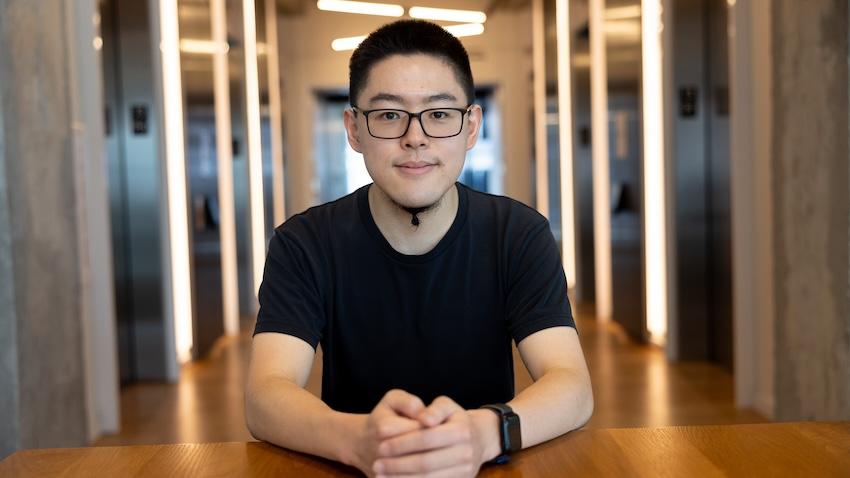
Research in AI Safety Lands Recent Graduate on Forbes 30 Under 30
Forbes named a recent Georgia Tech graduate to its 30 Under 30 in Science for 2025. Announced days before Fall 2024 Commencement, the accolade is the cherry on top of a fruitful graduate journey for alumnus Zijie (Jay) Wang (Ph.D. ML-CSE 2024).
Forbes selected Wang for his work on making artificial intelligence (AI) accessible, interpretable, and accountable.
While at Georgia Tech, Wang built several interactive, human-centered platforms that help users align machine learning (ML) systems with their values. These projects have assisted over 360,000 novices around the world to build their own AI tools easily and ethically.
Since completing his degree in July, Wang has worked at OpenAI as a full-time safety researcher. He designs and develops interactive tools and solutions to enable the safe deployment of advanced AI models in this role.
Wang joins 14 other Yellow Jackets that Forbes included in nine different 30 Under 30 lists. Wang is the only Georgia Tech-affiliated individual on the 30 Under 30 in Science list.
“I am thrilled about the Forbes selection because it acknowledges years of research with collaborators in the fields of human AI and responsible AI,” Wang said.
“This honor shines a light on these critical research areas, sparking conversations and inspiring new studies to ensure AI benefits everyone.”

The Forbes selection is the latest accolade Wang received from big names in business and technology.
Wang received the Apple Scholars in AI/ML Ph.D. Fellowship in 2023. Before that, he was selected to the 2022 cohort of the J.P. Morgan AI Ph.D. Fellowships Program.
These awards provide students funding, internship opportunities, and direct mentorship with researchers in their field.
Wang completed several internships while attending Georgia Tech that contributed to his research. These included experiences at Google Research, Apple, Microsoft Research, and Bosch Research.
Wang’s Ph.D. research, fellowship support, and internship experience culminated in his dissertation on democratizing human-centered AI. His thesis presented techniques in visual explanation and interactive guidance to align AI models with user knowledge and values.
Wang’s most influential projects formed the core of his dissertation. These included:
- CNN Explainer: an open-source tool developed for deep-learning beginners. Since its release in July 2020, more than 360,000 global visitors have used the tool.
- DiffusionDB: a first-of-its-kind large-scale dataset that lays a foundation to help people better understand generative AI. This work could lead to new research in detecting deepfakes and designing human-AI interaction tools to help people more easily use these models.
- GAM Changer: an interface that empowers users in healthcare, finance, or other domains to edit ML models to include knowledge and values specific to their domain, which improves reliability.
- GAM Coach: an interactive ML tool that could help people who have been rejected for a loan by automatically letting an applicant know what’s needed for them to receive loan approval.
- Farsight: a tool that alerts developers when they write prompts in large language models that could be harmful and misused.
“My research aims to make AI technologies easy and enjoyable for everyone to use,” Wang said. “This line of work not only lowers the barrier to learning and using AI but also helps researchers and developers build fairer and more accountable AI systems.”
Wang’s research interests align with his advisor’s, Polo Chau. Chau synthesizes ML and visualization techniques into scalable, interactive, and trustworthy tools. These tools increase understanding and interaction with large-scale data and ML models.
Chau is a professor in the School of Computational Science and Engineering (CSE) and the associate director of corporate relations for the Machine Learning Center at Georgia Tech. While a student in the ML program under Chau, Wang called the School of CSE his home unit.
“I wouldn’t be where I am today without the support of mentors and colleagues spanning from my time at Georgia Tech to several internships in industry,” Wang said.
“Most importantly, I owe it all to Polo. He was the one who introduced me to the field of human-AI interaction and has provided me with all the mentorship, freedom, and support I could ever ask for.”
As computing revolutionizes research in science and engineering disciplines and drives industry innovation, Georgia Tech leads the way, ranking as a top-tier destination for undergraduate computer science (CS) education. Read more about the college's commitment:… https://t.co/9e5udNwuuD pic.twitter.com/MZ6KU9gpF3
— Georgia Tech Computing (@gtcomputing) September 24, 2024


